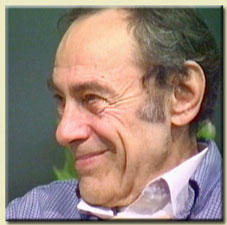John Locke Quotes - Page 4

The reason why men enter into society is the preservation of their property.
John Locke (1821). “Two treatises of government”, p.377
John Locke (1813). “An Essay Concerning Human Understanding”, p.300
Things of this world are in so constant a flux, that nothing remains long in the same state.
John Locke (1821). “Two treatises of government”, p.324
John Locke, Ruth Weissbourd Grant, Nathan Tarcov (1996). “Some Thoughts Concerning Education: And, Of the Conduct of the Understanding”, Hackett Publishing
John Locke (1813). “The Conduct of the Understanding: With Sketches of the Lives of Locke and Bacon”, p.128
John Locke (2007). “Some Thoughts Concerning Education: (Including Of the Conduct of the Understanding)”, p.187, Courier Corporation
The greatest part cannot know, and therefore they must believe.
John Locke (1958). “The Reasonableness of Christianity: With A Discourse of Miracles, and Part of A Third Letter Concerning Toleration”, p.66, Stanford University Press
John Locke, Peter Laslett (1988). “Locke: Two Treatises of Government Student Edition”, p.72, Cambridge University Press
John Locke (1821). “Two treatises of government”, p.119
Is it worth the name of freedom to be at liberty to play the fool?
John Locke, James Augustus St. John (1872). “Philosophical Works: Preliminary discourse by the editor. On the conduct of the understanding. An essay concerning human understanding”, p.391
The visible mark of extraordinary wisdom and power appear so plainly in all the works of creation.
John Locke (1836). “An Essay Concerning Human Understanding”, p.40
John Locke (2015). “The Second Treatise of Civil Government”, p.141, Broadview Press
John Locke, John W. Yolton (1977). “The Locke Reader: Selections from the Works of John Locke with a General Introduction and Commentary”, p.246, CUP Archive
John Locke, David Wootton (1993). “Locke: Political Writings”, p.426, Hackett Publishing
Our Business here is not to know all things, but those which concern our conduct.
John Locke (1813). “An Essay Concerning Human Understanding”, p.34
John Locke (1824). “The Works of John Locke: Letters to the Right Rev. Edward lord bishop of Worcester, concerning Mr. Locke's Essay of human understanding. Mr. Locke's reply. Answer to Remarks upon an Essay concerning human understanding. Mr. Locke's reply”, p.459
John Locke (1693). “Some Thoughts Concerning Education”, p.69
John Locke (1821). “Two treatises of government”, p.312






